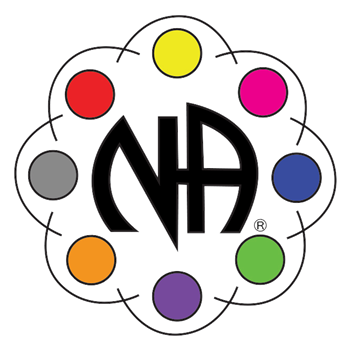NA Daily Meditations

NA Meitations
Feel free to read one of our 2 daily meditations.
- Just For Today
- Spiritual Principle A Day
Just For Today
February 06, 2026 |
I can’t–we can |
| Page 38 |
| “We had convinced ourselves that we could make it alone and proceeded to live life on that basis. The results were disastrous and, in the end, each of us had to admit that self-sufficiency was a lie.“ |
| Basic Text, p. 62 |
| “I can’t, but we can.” This simple but profound truth applies initially to our first need as NA members: Together, we can stay clean, but when we isolate ourselves, we’re in bad company. To recover, we need the support of other addicts. Self-sufficiency impedes more than just our ability to stay clean. With or without drugs, living on self-will inevitably leads to disaster. We depend on other people for everything from goods and services to love and companionship, yet self-will puts us in constant conflict with those very people. To live a fulfilling life, we need harmony with others. Other addicts and others in our communities are not the only ones we depend on. Power is not a human attribute, yet we need power to live. We find it in a Power greater than ourselves which provides the guidance and strength we lack on our own. When we pretend to be self-sufficient, we isolate ourselves from the one source of power sufficient to effectively guide us through life: our Higher Power. Self-sufficiency doesn’t work. We need other addicts; we need other people; and, to live fully, we need a Power greater than our own. |
| Just for Today: I will seek the support of other recovering addicts, harmony with others in my community, and the care of my Higher Power. I can’t, but we can.
|
Spiritual Principal A Day
February 06, 2026 |
Unconditional Love and Step Five |
| Page 38 |
| “. . . many of us have looked up and seen unconditional love in the eyes of the person hearing our Fifth Step.” |
| It Works, Step Five |
| From addict to addict, sponsor to sponsor, sponsee to sponsee, there’s nothing in NA that all of us experience the same way. There’s the popularized, or even idealized, notion of how things should go, and there’s how they actually happen. Many of us resist Step Four because of Step Five. The thought of being that vulnerable with someone is scary. And when we hear those wonderful stories of members reading their inventories to their sponsors and immediately feeling relief and acceptance, we may feel more intimidated than reassured. Many of us do have a sponsor whose eyes reflect unconditional love and who says all the right things. But what about tomorrow? Like all other spiritual principles, unconditional love takes work. It’s not a snap-your-fingers moment, a switch we turn for the perfect moment that stays bright without fail. NA provides a place for all of us, a place where any addict can find hope. We deserve the love of the Fellowship, yet that requires the individual effort of members. Unconditional love is more than merely loving someone for who they are regardless of . . . In the sponsor-sponsee relationship, loving is more than just accepting. A sponsor shared, “Unconditional love says that I will invest in your growth, no matter what. I intentionally decide to invest in someone regardless of who you are or what you’ve done. We all deserve that. I also have to be working on myself to loosen and remove the conditions on love that my life experiences have placed there.” We don’t do it perfectly, and how we express unconditional love isn’t uniform from addict to addict or from day to day. Accepting the unconditional love that’s offered also takes work. For many of us, the Fifth Step is an opportunity to do just that. Perhaps even more so, it’s the day after, when we call our sponsor and they’re there for us, just like yesterday. |
| Love is a decision that needs to be made over and over again. I’m willing to take action about that decision today regarding a fellow member and unconditionally express love as best I can. |
| Copyright (c) 2007-2026, NA World Services, Inc. All Rights Reserved |